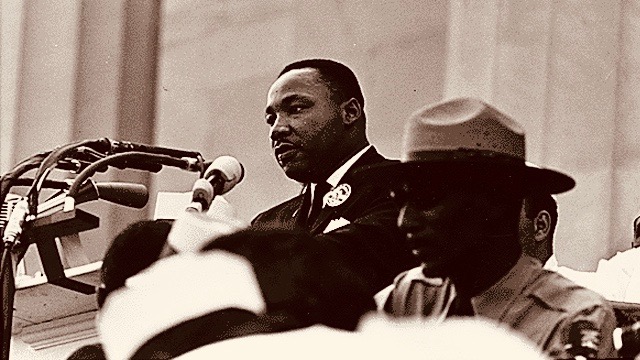Martin Luther King Jr.: “My dream has turned into a nightmare”

Martin Luther King Jr.: “My dream has turned into a nightmare” Dr. Martin Luther King Jr. explains the war in Vietnam was undermining the fight for social justice by breeding insensitivity to the suffering of South Asians and dulling America’s collective conscience.
Don’t Forget That Martin Luther King Jr. Was Once Denounced as an Extremist

Dr. Martin Luther King Jr. addressing crowd of demonstrators outside the Lincoln Memorial during the March on Washington for Jobs and Freedom in 1963 Francis Miller—The LIFE Picture Collection/Getty Images by Jeanne Theoharis
As Monday’s observance of Martin Luther King Jr. Day approaches, King’s “I Have a Dream” speech at the March on Washington is sure to be celebrated and replayed across the U.S. In today’s popular imagination, the March on Washington stands as one of the most American events of the 20th century—the power of U.S. democracy made real in the quarter of a million people who gathered on the National Mall and the majesty of King’s speech that August day.
At the time, however, that was not the case. In 1963, most Americans disapproved of the event, many congressmen saw it as potentially seditious, and law enforcement from local police to the FBI monitored it intensively (under code name Operation Steep Hill). Indeed, it was after King’s speech at the March on Washington that the FBI—with President Kennedy’s approval—decided to increase their monitoring of the civil rights leader. With the FBI describing King as “demagogic” and “the most dangerous . . . to the Nation . . . from the standpoint . . . of national security,” Attorney General Robert Kennedy signed off on intrusive surveillance of his living quarters, offices, phones and hotel rooms, as well as those of his associates.
Fast forward a half a century, and many commentators from former presidential candidate Mike Huckabeeto CNN reporter Wolf Blitzer to Atlanta mayor Kasim Reed have chastised Black Lives Matter protesters for not living up to the legacy of the civil rights movement and called on them to be more like Martin Luther King. Our popular memory of the civil rights movement makes it seem as if most decent people were in favor of the movement, but the reality was that they were not. Many of the criticisms lobbed at Black Lives Matter today were also leveled against civil rights activists five decades ago.
The civil rights movement was deeply unpopular at the time. Most Americans thought it was going too far and movement activists were being too extreme. Some thought its goals were wrong; others that activists were going about it the wrong way—and most white Americans were happy with the status quo as it was. And so they criticized, monitored, demonized and at times criminalized those who challenged the way things were, making dissent very costly. Most modern tributes and understandings of the movement paper over the decades when activists like Martin Luther King, Rosa Parks and scores of their comrades were criticized by fellow citizens and targeted as “un-American,” not just by Southern politicians but by the federal government. To read more go to the link below:


